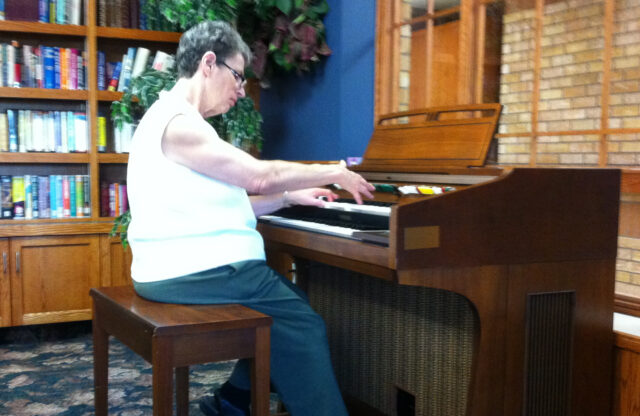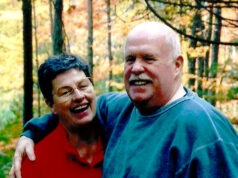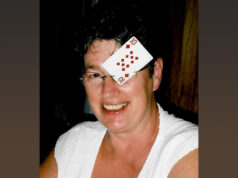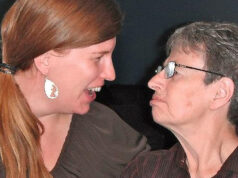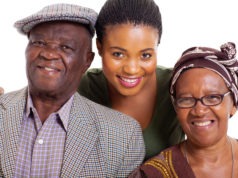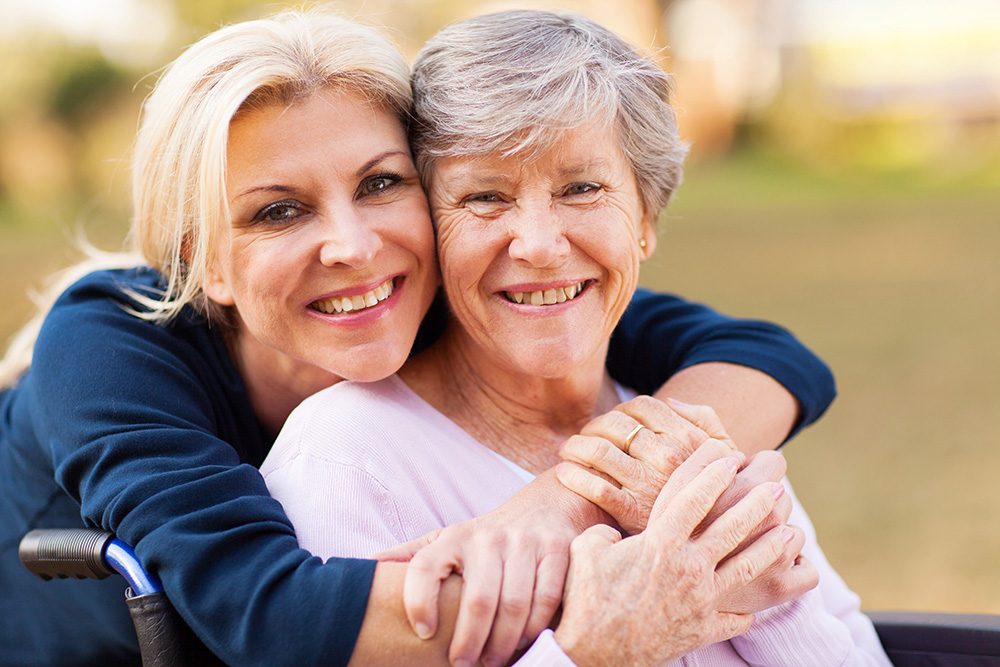Suzanne: Welcome back everyone to Answers for Elders radio network and we are here with caregiver care partner Parkinson’s expert? Lianna Marie from all about Parkinson’s dot com. And Lianna and I are talking about have the facing, facing having fear about, you know, what is the head, how, what’s the process of accepting that? And we’re gonna talk about this last aspect of it and that is called basically um you call it faith thing. Your fears, Lianna explain to me what that means. Well,
Lianna Marie: thank you. Um, I wondered if you catch that. But my mom and I, we were very much into faith thing, our fears and using because sometimes we know we, we learned over time. You know, you don’t know what what the future, none of us know what the future holds, right? So the sooner we can accept that, I think the better off we’ll be um for sure we face shut up a lot in my mom’s life and I can talk about a bit more about that in a few minutes. But I think the biggest thing, the fear factor at the, as we were processing going through this, you know, accepting the disease. Um, and then realizing there were so many things that were like, we’re afraid of the unknown, which many people are, but in particular because Parkinson’s looks so different every different person. So you really just had no idea. I am I going to look like that person in a wheelchair? Am I going to look like this person over here, what the outcome going to be for the person with Parkinson’s and then for the caregiver it’s like, well, like are we gonna, what, what does this mean? Like ultimately it did end up mom was in a care home in long term care, but at the beginning, if you had told me that that’s what was going to happen, I would have been freaking out. Like I was just like that, that I didn’t want to, I didn’t even want to go there, right? So I was a little bit afraid of, you know, long term, what’s it gonna look like? And is mom gonna die this violent death? And I had all these things that I imagined in my head which never occurred by the way, which we do that sometimes. Right? So yeah, I was, I was fearful about a lot of things that never ended up happening. Um I’m good at that.
Suzanne: There you go. Well. And I think also when you’re looking at, you know, fear is a funny thing and you know, it’s funny how it shows up in your life and um, you know, being that we’re both business owners, One of the things that I always have told myself is um, be comfortable with being uncomfortable, you know? So that’s really what it is. It’s a, it’s a future. There’s a lot of things that we may have a north star that we look forward to, to say, you know, we hope that this works out okay. But at the same token, I think one of the things that you did with that fear is you channeled that into your work and I think that’s the one of the amazing things that you have done
um with that. And I’m wondering, has that been kind of an impetus to you to, to start all about Parkinson’s?
Lianna Marie: Well, I mean there was for sure a lot of, and I like how you frame that. It’s there’s a lot of uh you know, reasons why we started all about Parkinson’s, but it probably is a good the way explain it, like channeling all of those things of, you know, um fear anxiety, uh just of the, of of wanting to feel like I was doing something, you know, to help the future, you know, whatever that maybe if I can help, whether it’s my mom or other people with Parkinson’s, I am doing something instead of sitting here in my little cubicle being scared about whatever it might be, right? So it does help when you’re actively doing something and I think that’s a good segue to talk about like how my mom, how she handled her fears over time and certainly it wasn’t an overnight fix, right? But it never, you never is, but you know, she did have counseling, she did talk to people, I think that was the biggest thing, and you mentioned it before is being okay with being vulnerable and actually admitting whether it’s I’m afraid of this or admitting that you’re angry or admitting that whatever it is, you know, because that’s the first step is just now, it sounds hokey, like it’s like this, you know, the 12 step program, but really is a big deal to be able to say I’m afraid of this. Um and once my mom could acknowledge that I feel like her faith, um and and and in her case she had a strong belief in God and I think um all the way to the end and I really, truly believe that was what say saved her literally um every morning when she got up, this is, you know, Parkinson’s presents itself differently every day, you know? But it gave her some purpose and meaning in her life. And I think a lot of people who talk to me whether it’s God or some form of spirituality has really helped them, especially those who had a, you know, a harder hand that’s been dealt to them. Um they have found that using that faith in their fears saying, you know what, I don’t know what’s ahead, but I’m gonna walk, I’m going to put one ft in front of the other in faith knowing that, you know what I can do this one day at a time, you know, I’m getting my strength for my mom. Getting her strength from God for her was really, really important and um and again, this is not to alienate whatever it is that your spiritual space and finding some strength, there was really important for my mom.
Suzanne: It’s so interesting that you have parallels my, my, I used to envision a phoenix rising out of the ashes, that was like my visualization when I started Answers for Elders. It’s like I wanted to help. It’s so similar to what you’re talking about. But my life was in ruins taking care of my mom because I made so many bad decisions, right? And I knew the only way that I was going to get out of this is I was gonna make something of this? It was like, it was my, It was my holy grail, you know, per se that I know I can overcome this and help others not to be in this position and you know, now I think about it, that was 14 years ago, right? So, so you know, now that I look back at it, it’s a really powerful time of my life, it was transformational in my life and I think that’s the thing that, you know, these kind of experiences as we go through this process can be transformational and you have so many amazing tools at all about Parkinson’s dot com, why don’t you share a little bit about that, Lianna.
Lianna Marie: Sure, of course, our books, my books, I say our books a lot of the time because my mom was the beginning of those books and is the reason we wrote them. But I also want to encourage people, we have a great tips book and I don’t say it to boast boast, but a lot of people say they’re great tips and it’s free if you go to all about Parkinson’s dot com, it’s great. It’s just practical Parkinson’s tips and you can get that by going to our website. And and of course you’re always welcome to email me if you’ve got any questions I’d love to hear from people.
Suzanne: Lianna, it has been such a joy having you on the program today and talking about things that are so valuable in so many ways and you know, to each one of you when we think about grief, be gentle with yourself and you can certainly learn more about caregiving with Parkinson’s disease with the complete guide for people with Parkinson’s disease and their loved ones and the other book, everything you need to know about caregiving for Parkinson’s and Lianna upcoming book, which is coming soon, the Parkinson’s path. So thanks leana for being on the show today. And I also want to thank um very much so that Answers for Elders is part of the Senior Resource Network and we are a growing community of experts and you can learn more at SeniorResource.com.






